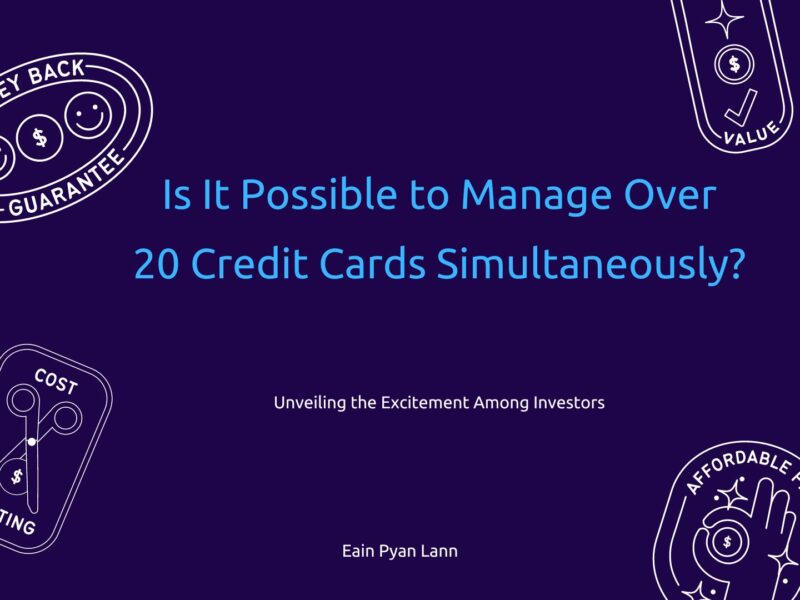Credit cards can indeed be invaluable assets in managing finances, providing convenience, rewards, and the opportunity to establish credit. Yet, their misuse can also result in detrimental financial consequences. In this article, we’ll delve into five prevalent credit card mistakes that may be draining your finances and strategies to sidestep them.

1. Carrying a Balance
One of the most common and costly mistakes people make with credit cards is carrying a balance from month to month. When you carry a balance on your credit card, you’re subject to high interest charges, which can quickly add up and eat into your budget. Over time, paying only the minimum payment can result in a significant amount of interest being paid, making it difficult to pay off your debt.
To avoid this mistake, strive to pay your credit card balance in full each month. If you’re unable to pay the full balance, at least pay more than the minimum payment to reduce the amount of interest you’ll incur. Consider using a balance transfer to a card with a lower interest rate or a personal loan to consolidate high-interest debt and save on interest costs.
2. Missing Payments
Missing credit card payments can have serious consequences, including late fees, penalty interest rates, and damage to your credit score. Late payments not only incur fees but also result in negative marks on your credit report, which can lower your credit score and make it harder to qualify for loans and credit cards in the future.
To avoid missing payments, set up automatic payments or reminders to ensure that you never forget to pay your credit card bill on time. Consider setting up alerts on your phone or calendar to notify you of upcoming due dates, and take advantage of online banking tools that allow you to schedule payments in advance.
3. Paying Annual Fees Without Utilizing Benefits
Many credit cards come with annual fees, which can range from a few dollars to several hundred dollars per year. While some cards justify these fees with valuable rewards, perks, and benefits, others may not offer enough value to justify the cost. Paying an annual fee without fully utilizing the benefits of the card can end up costing you money unnecessarily.
Before renewing a credit card with an annual fee, carefully evaluate whether the benefits you receive justify the cost. Consider how often you use the card’s rewards and perks, such as cashback, travel insurance, or airport lounge access, and compare them to the annual fee. If the benefits don’t outweigh the cost, consider downgrading to a no-annual-fee card or canceling the card altogether.
4. Ignoring Interest Rates
Credit card interest rates can vary widely, ranging from single-digit percentages to high double digits for those with poor credit. Ignoring interest rates and carrying a balance on a high-interest card can result in significant interest charges over time, making it harder to pay off your debt and achieve financial freedom.
To minimize interest costs, prioritize paying off high-interest credit card debt first, either by aggressively paying down the balance or transferring it to a card with a lower interest rate. Consider negotiating with your credit card issuer for a lower interest rate or exploring options for consolidating high-interest debt into a lower-rate loan.
5. Overspending
Finally, one of the most common mistakes people make with credit cards is overspending. The ease and convenience of using a credit card can lead to impulse purchases and a tendency to spend beyond your means. Overspending can quickly result in high credit card balances, making it difficult to pay off your debt and leading to financial stress.
To avoid overspending, create a budget and stick to it. Track your expenses regularly and be mindful of your credit card balances to avoid exceeding your budget. Consider using cash or debit cards for discretionary purchases to help curb impulse spending, and only use your credit card for planned expenses that you can afford to pay off in full each month.
Conclusion:
Credit cards can be valuable financial tools when used responsibly, but they can also lead to costly mistakes if mismanaged. By avoiding these common credit card mistakes, you can save money, build credit, and achieve financial stability.
Be proactive about managing your credit card accounts, pay your balances in full and on time, and make informed decisions about which cards to use and how to use them wisely. With careful planning and responsible use, you can make the most of your credit cards while avoiding costly pitfalls.

